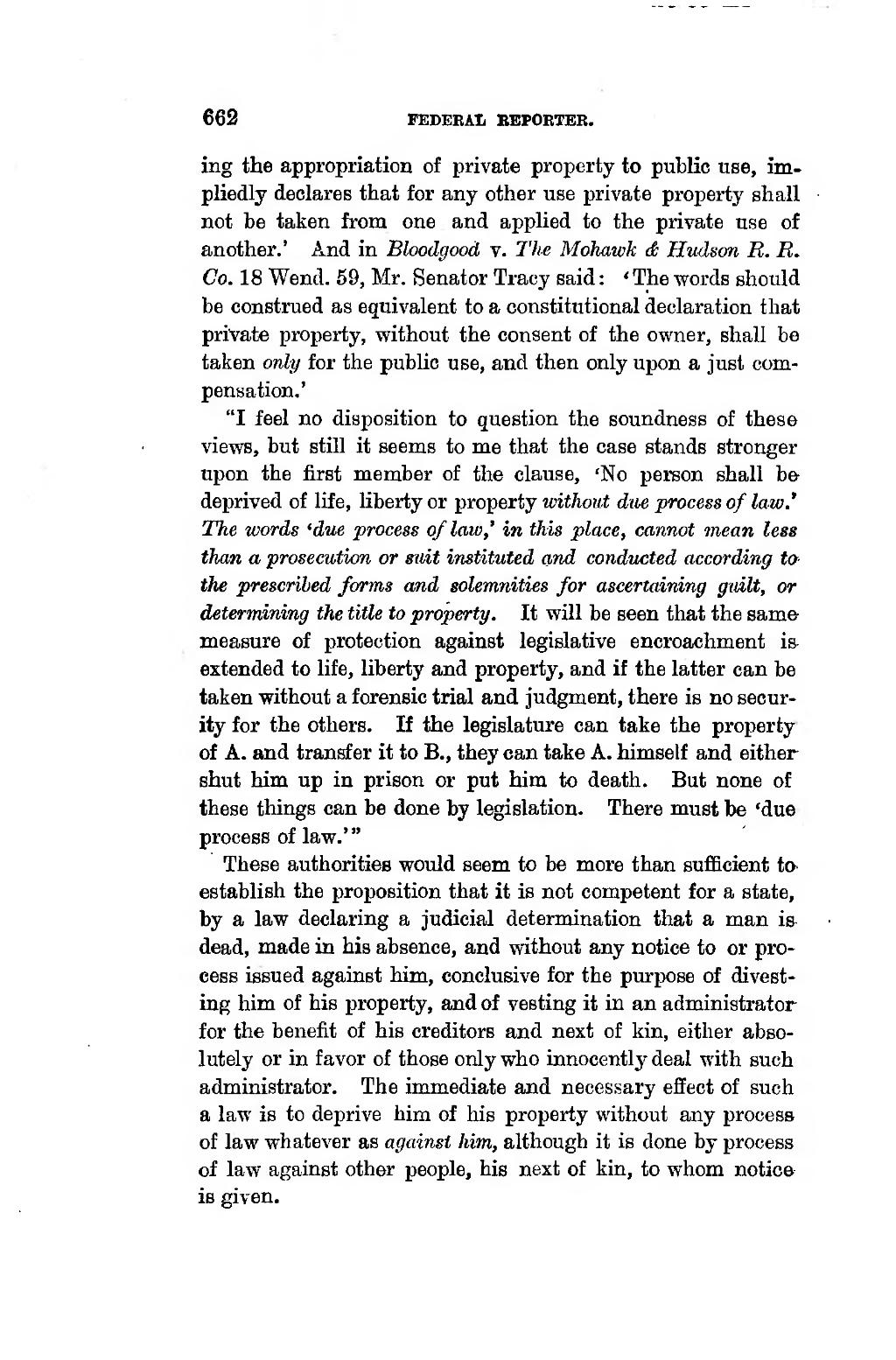662 FEDERAI BBPOBTER, �ing the appropriation of private property to public use, im- pliedly declares that for any other use private property shall not be taken from one and applied to the private use of another.' And in Bloodgood v. The Mohawk e Hudson R. R. Go. 18 Wend. 59, Mr. Senator Traoy said : ' The words should be construed as equivalent to a constitutional declaration that private property, without the consent of the owner, shall be taken only for the public use, and tlien only upon a just com- pensation.' �"I feel no disposition to question the soundness of these views, but still it seems to me that the case stands stronger upon the first member of the clause, 'No person shall be deprived of life, liberty or property without due process of law.' The words 'due process of law,' in tkis place, cannot mean less than a prosecution or suit instituted and conducted according to the prescribed forms and solemnities for ascertaining guilt, or determining the title to property. It will be seen that the same measure of protection against legislative encroachment is extended to life, liberty and property, and if the latter can be taken without a forensic trial and judgment, there is no seour- ity for the others. If the legislature can take the property of A. and transfer it to B., they can take A. himself and either shut him up in prison or put him to death. But none of these things can be done by legislation. There must be 'due process of law.'" �These authorities would seem to be more than sufficient t» establish the proposition that it is not competent for a state, by a law declaring a judicial determination that a man is dead, made in his absence, and without any notice to or pro- cess issued against him, conclusive for the purpose of divest- ing him of his property, and of vesting it in an administrator for the benefit of his creditors and next of kin, either abso- lutely or in f avor of those only who innocently deal with such administrator. The immediate and necessary effect of such a law is to deprive him of his property without any process of law whatever as against him, although it is done by process of law against other people, his next of kin, to whom notice is given. ��� �
